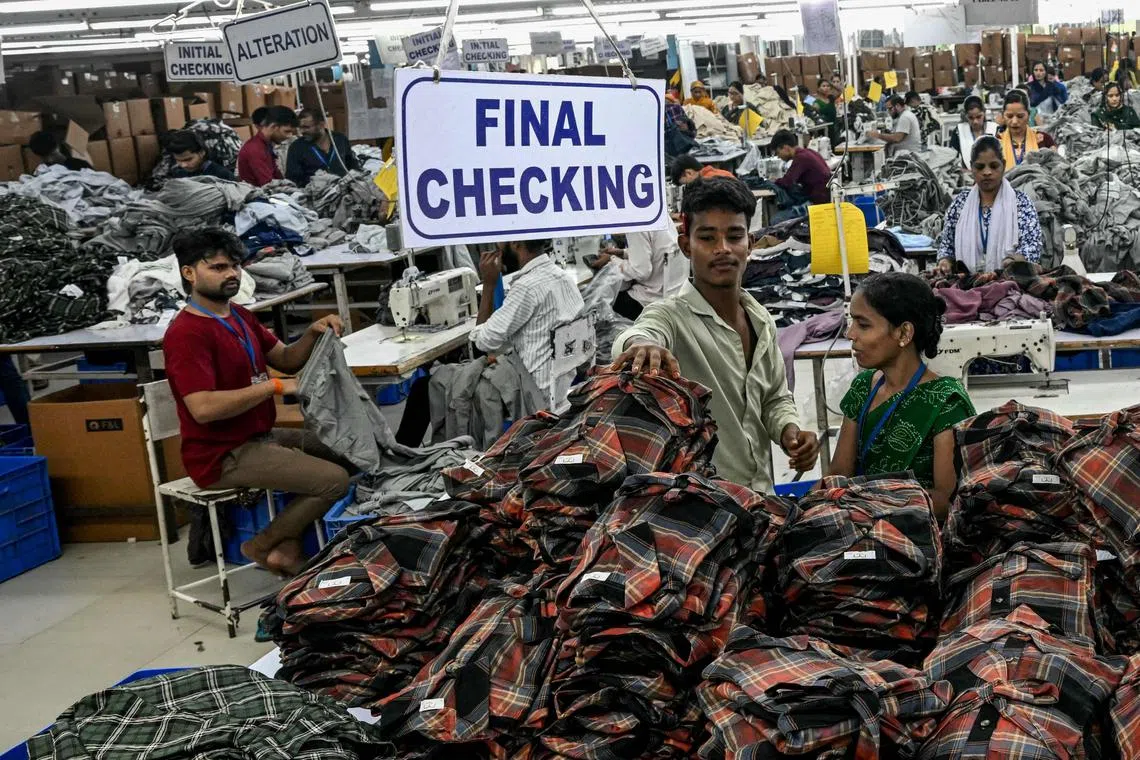Trump’s 50% tariffs could derail India’s manufacturing goals, Moody’s says
Sign up now: Get insights on Asia's fast-moving developments

US President Donald Trump on Aug 6 imposed an additional 25 per cent tariff on Indian goods, taking the total to 50 per cent.
PHOTO: AFP
NEW DELHI - US President Donald Trump’s 50 per cent tariffs on Indian imports – far steeper than those imposed on other Asia-Pacific countries – would severely curtail India’s ambitions to develop its manufacturing sector, ratings agency Moody’s Ratings said on Aug 8.
Mr Trump on Aug 6 imposed an additional 25 per cent tariff on Indian goods, taking the total to 50 per cent, citing New Delhi’s continued imports of Russian oil.
The doubled tariffs may even reverse some of the gains India made in attracting global investments, Moody’s said, flagging risks to the country’s growth and inflation.
Moreover, the Reserve Bank of India (RBI) kept its key rates unchanged as expected and retained its “neutral” policy stance following a surprise 50 basis point rate cut in June.
According to Moody’s, curbing Russian oil imports to avoid penalty tariffs could make it more difficult for India to secure alternative crude supplies in adequate quantities promptly.
Global trade uncertainties, fuelled by the US tariffs, have also kept foreign investors on edge.
Foreign portfolio investors have already offloaded Indian shares worth US$900 million (S$1.15 billion) so far in August, following US$2 billion in outflows in July.
India’s equity benchmarks, the Nifty 50 and Sensex, slipped 2.9 per cent in July and are down 0.7 per cent so far in August, amid heightened investor anxiety driven by the escalating trade uncertainties. REUTERS


